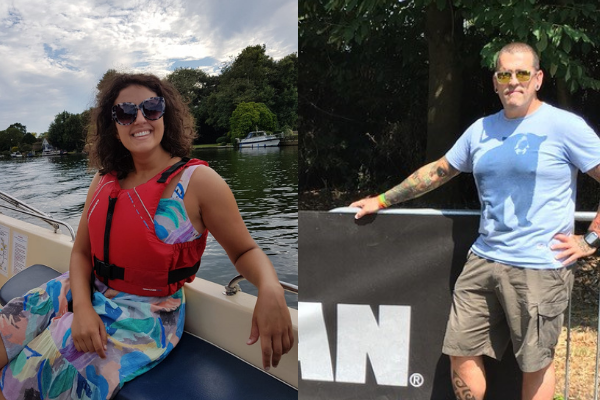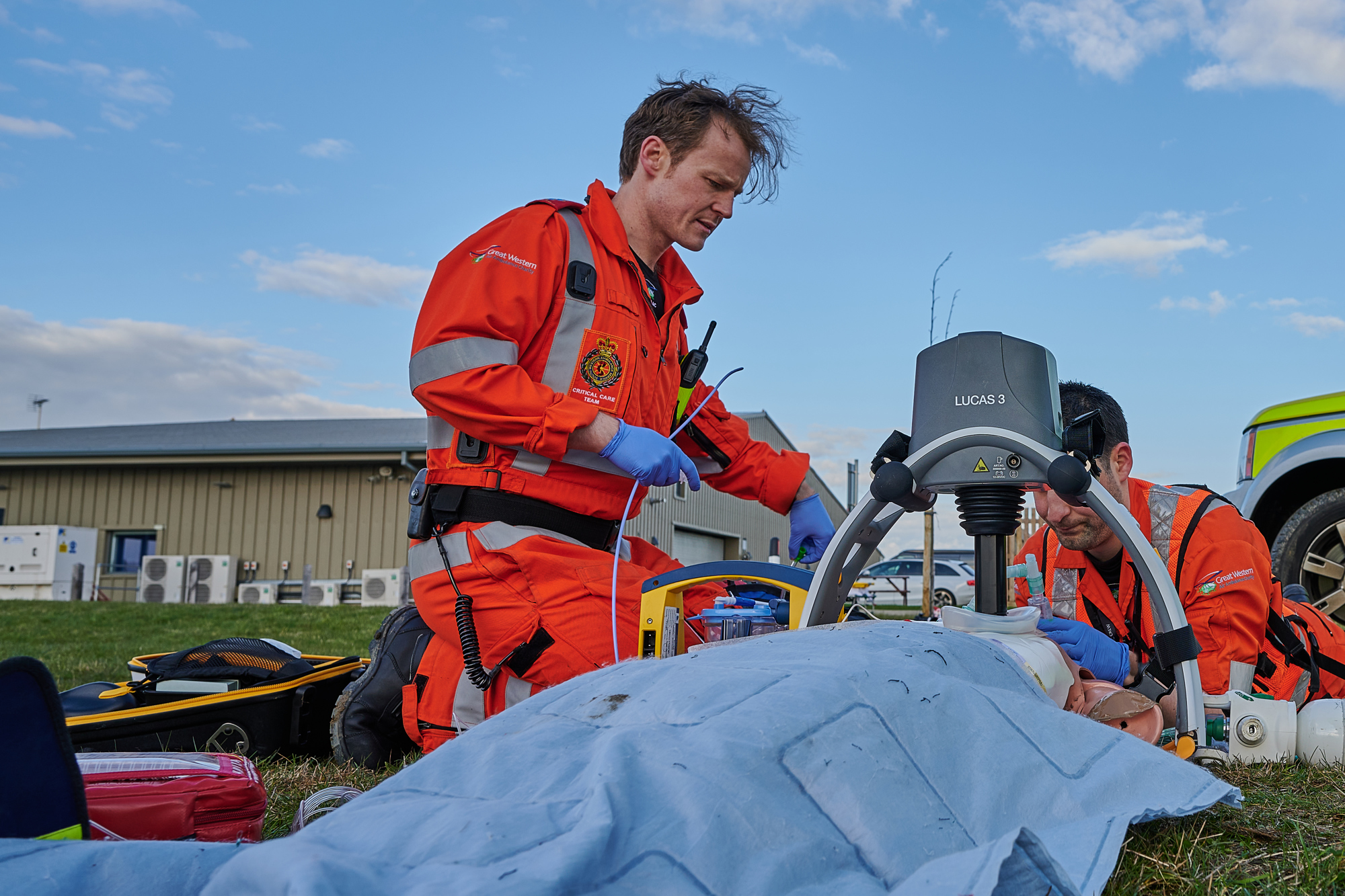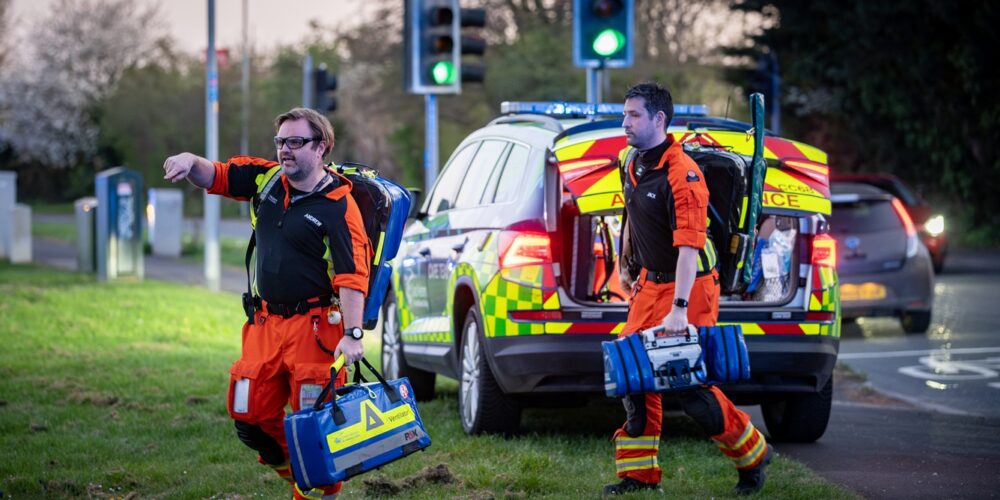
Meet Great Western Air Ambulance Charity’s newest recruits – Fleur and Dan!
September 28, 2020
New bespoke COVID-19 counselling service for GWAAC’s crew
December 3, 2020All of our doctors are consultants in regional hospitals, and complete additional training in Pre-Hospital Emergency Medicine to become Critical Care Doctors. Having doctors on board means our service can provide advanced medical interventions at the scene of an incident, and potentially save a life.
GWAAC’s Critical Care Doctor Tim gives us an insight as to what it’s like to work as a doctor in the pre-hospital environment:
“It is some of the most challenging medicine that I’ve ever practised. It’s something you train for and hope you never have to do.”
As a Critical Care Doctor at Great Western Air Ambulance Charity I know that our response to any call that comes through could mean the difference between life and death. But on a very rare occasion there will be a patient so seriously injured that my actions over the course of a minute could make that difference.
When we don’t have the time to get our patient to hospital for the emergency surgery that could save their life, we have to do it there at the roadside. That’s why I need to be ready to make quick decisions on scene. I need to know how to perform surgery that I would usually only do in an operating theatre surrounded with every bit of kit and every colleague I would need, right there and then with a much smaller but incredibly well-trained team. And I have to have the confidence in my ability to make a difference to the person – who at that moment, has put all their faith in me.
“In hospital you have every bit of kit you’d ever need, every person you’d ever need, a great breadth of experience and specialism – great light, great positioning.”
I was in the helicopter on a summer day, with two Specialist Paramedics in Critical Care. We were called to a person with severe burns. They were in need of emergency care, fast. Even before we were airborne we were anticipating the need to perform a complex surgical procedure upon arrival. Each of us on shift that day had attended surgical skills training so we were able to plan for any difficulties and possible obstacles we might face, in order to give the patient the best possible outcome.
When we arrived it was clear that the burns to their airway were so extensive they were constricting the individual’s ability to breathe. We needed to anaesthetise them – to take over their breathing and to take away their pain.
Because our patient had internal burns we were unable to access the windpipe through the mouth, and needed to perform a procedure called a surgical airway. It’s very rare – something most anaesthetists and emergency physicians will never have to do in their career. It allows us to make an incision in the neck directly to the patient’s trachea in order to insert a breathing tube.
Due to the extent of their injuries, I knew it was going to be challenging to locate the area of their throat for best surgical access. But as the consultant, it was my responsibility.
I was really quite anxious. Taking a deep breath, I put my hand onto the neck and into the surgical wound that we made. It was like being back in the training lab during my surgical skills course. Once I started, it felt exactly like it did in the lab; suddenly it was easy. I knew what to do. The tube went in, we squeezed the bag to inflate the lungs, and the procedure had worked perfectly.
“At that moment when it was most critical that I got it right, I could fall back on my training. From there, it became easy.”
Without the hands-on experience of the surgical skills course, I don’t know if I would have been able to deliver that procedure. Without it, I suspect I would have been panicked. It would have felt unfamiliar. The training allowed me to practice what I’d read about in a textbook at medical school – so that I could be mentally ready and so much more prepared to deliver the skill in a real situation.
That’s why these training courses are so valuable. The fact that the procedures are done so infrequently is why practice is so important. On scene it gives you confidence in your own abilities. You’re not second guessing yourself.
“Although they are rare, there will be a day when it needs to be done.”
What we learn on the surgical skills course are some of the most difficult procedures in emergency medicine. They are time critical. From start to end, we complete most of the emergency procedures in one minute and usually only at the most serious incidents.
This means we have to perform them in challenging environments. It can be in bad weather, in the dark, or in potentially aggressive environments, such as at the scene of a stabbing. This particular incident was in a busy car park, with lots of people around. It was also during the COVID-19 outbreak and no one had done a significant surgical procedure in that level of personal protective equipment.
“It was the exact same feeling that it was in the lab but this time it was in a car park in the middle of nowhere, with lots of people around, and I was in full PPE – there were so many additional stresses.”
To be able to be there at the point somebody is injured, doing everything you are able to do in hospital but doing it at the roadside, or in someone’s house, or place of work is incredibly rewarding.
But I can only do it because of the bespoke training courses available to me.
The invaluable experience of being able to practice these complex surgical procedures in the most authentic way possible, alongside my colleagues, means we can be prepared for any situation we face as a team. It enables us to continue to bring that high quality of care that we deliver in hospital all the time, forward, to where it can make the most difference.

When we don’t have the time to get our patient to hospital for the emergency surgery that could save their life, we have to do it there at the roadside. That’s why I need to be ready to make quick decisions on scene.




